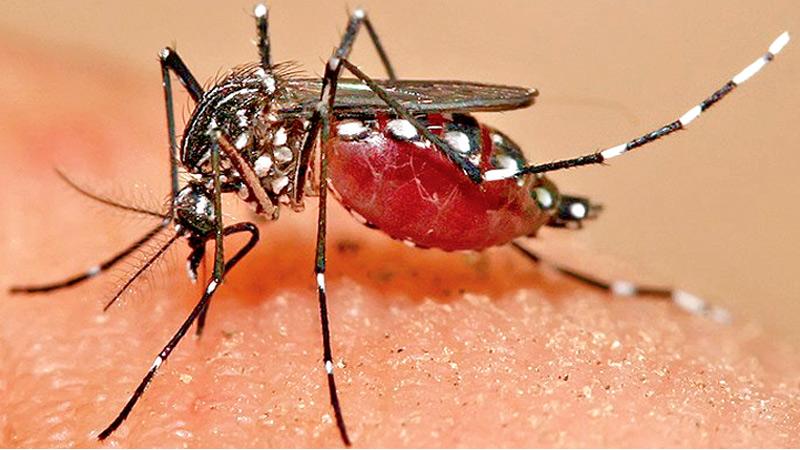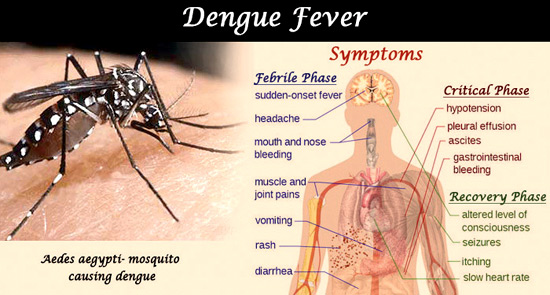
It is likely that people may pay less attention to dengue during the Covid-19 outbreak. This is because both these illnesses share similar symptoms during their initial stages such as fever, severe body aches and pains, joint pains and headache.
We know that patients suspected of covid are encouraged to stay at home. However, there is a chance that they may actually have dengue rather than Covid-19. Therefore, it is important to know how should we overcome this dilemma and make ourselves safe. The Sunday Observer met Kelaniya University Medicine Faculty Prof. Ranjan Premaratna to know more about dengue.
Excerpts
 Q: Do you think dengue has been masked or downplayed during the covid outbreak?
Q: Do you think dengue has been masked or downplayed during the covid outbreak?
A: Yes. There can be a chance that dengue patients may stay at home thinking they are down with Covid-19 because of similarities in their symptoms. Such mistakes may increase dengue related complications and deaths.
We are probably at the tail end of Covid-19 infection. The public is encouraged to stay at home if they become symptomatic with febrile illness. As facilities for confirmation of Covid-19 is not commonly and freely available and since it is comparatively costly, people may opt to stay at home without taking precautions.
Dengue is caused by four dengue viruses D1-D4. Sri Lanka has experienced dengue illness by all four of these viruses from time to time. One is likely to get dengue infection four times during life. This is because the if one gets dengue by dengue virus one, he will be immune to dengue one only, and since there are three other viruses, illness can occur three more times.
Dengue illness occurs following a rainy season because the mosquito breeds in water collections. As the dengue mosquitoes flight range is just around 800 metres, the breeding sites of mosquitoes in other words, these water collections are mostly in and around the home and the garden. If one catches dengue, he should be aware that there are dengue breeding sites in and around the garden or the workplace. We are aware of these breeding places. Dengue illness occurs only in the human and it does not get transmitted from person to person unlike Covid-19, and you don’t catch dengue by other animals.
Q: Feeding habits of dengue mosquitoes
A: It is only the female mosquito (Aedes aegyptii (tiger mosquitoe) and Aedes albopictus) that feeds on humans. The male mosquito feeds on plant juices. The feeding of the mosquitoes usually occurs during early hours of the day and towards in the evening. Exactly the times when either children go to school or nurseries or children play in the garden.
Therefore, there is no use of a bed net in preventing catching denuge. What you can do is wearing long sleeved garments or using mosquito repellents to prevent bites. The female dengue mosquito is a nervous feeder, and it keeps on biting several people in a matter of few minutes during its meal. One dengue mosquito is adequate to cause a dengue outbreak.
Q: Is there a way to differentiate dengue and covid-19?
A: We know that we are, probably, in the tail end of Covid-19, however we can catch dengue anytime during the year. If one is suffering from fever, headache, joint pains and body aches, this can be due to either of the two. We usually see stuffy nose, sore throat in association with Covid-19. Our understanding is that such symptoms are rare with dengue. Initially we thought that cough is unusual with dengue. However, we have seen patients coming with dengue who have had a dry cough at the beginning of the illness.
Therefore, these two illnesses share similar symptoms and most of the time, it is extremely difficult to differentiate whether its dengue or Covid-19. The important issue, therefore, is, unlike for dengue, for Covid-19, we ask people to be at home and to be away from others to prevent its spread from one to the other.
Therefore, there is a chance that some of these patients may have dengue and may get bad. It is very important to understand what one should do to prevent dengue related complications during the Covid-19 outbreak.
Q: Is there a difference between the manifestations of dengue and Covid-19 when they become severe?
 A: Dengue becomes severe around 4-6 days of illness and most of the time manifested by severe generalised weakness, reduced urine output, tummy pain and sometimes vomiting. But in Covid-19, the severe illness tends to happen after about a week of having fever and manifests with progressive breathlessness. It can be difficulty to detect the severe illness of dengue or Covid. The most important approach is to confirm the illness during its early stages.
A: Dengue becomes severe around 4-6 days of illness and most of the time manifested by severe generalised weakness, reduced urine output, tummy pain and sometimes vomiting. But in Covid-19, the severe illness tends to happen after about a week of having fever and manifests with progressive breathlessness. It can be difficulty to detect the severe illness of dengue or Covid. The most important approach is to confirm the illness during its early stages.
Q: How would you confirm these illnesses?
A: Dengue is confirmed by the rapid test called dengue NS1 Ag test and Covid is diagnosed by Covid antigen test or by the polymerase chain reaction (PCR). However, the tests for covid are not readily available these days. Therefore, the easiest is to get the dengue antigen test. This test can be costly.
However, the Government has requested to perform the test for around Rs.1000-1500. If you are willing to do the Ag test, you should get it done on the first or the second day of fever, because it’s the time the test detect about 90-100 percent of dengue illness. If you do it on the third day, this detection rate can drop to below 60 percent. That means, your test can be negative 30-40 percent despite you are having dengue.
Q: Are there any other tests one suspected dengue patient can undergo? What about the full blood count and the platelets?
A: Most of us are doing a full blood count when we have fever. People are worried especially when the platelet count is low. This is an area we should be clear about.
Most of our people go to a doctor on the first or the second day of fever. If you do a full blood count on these days, most of the time, it can be normal. It can show changes of a bacterial infection, especially if it is done very early (High count) and the platelet count can be within normal limits. Sometimes, you can be treated with antibiotics mistakenly as having a bacterial infection.
This is a common error that can happen if you do the count on the first or the second day. To avoid this, what I advise is to get a repeat count on the 3rd or the 4th day, especially if you have done the count early or if you have not done it so far. By this time, you will see the changes of dengue in the full blood count. The other important issue is, in Covid-19, the full blood count changes alone can be similar to dengue. Therefore, it’s the Ag test that is most useful during Covid-19- dengue outbreaks to diagnose dengue.
Q: What precautions should you take for dengue?
A: It is important to observe bed rest if you are having dengue, should not do physical activities or exert themselves. This is because this infection mostly involve small blood vessels and they can become quite leaky very easily with exertion. We have seen deaths of dengue patients who come with severe bleeding from many sites or with advance leaking, beyond that could be managed in hospital simply due to ignoring the illness and exerting themselves.
One should not take drugs like diclofenac sodium (some familiar brands: Voltanan/ Divoltar) or ibuprofen (Some common brands: Brufen) Mefanamic acid or aspirin for severe aches and pains or for high fever. They cause severe bleeding in the tummy and have no treatment at hospitals and the outcome is death following severe uncontrollable bleeding. One should stick to drugs such as paracetamol and nothing more than that.
In addition to that, taking oral fluids is mandatory, irrespective of if they have vomiting or diarrhoea because, at least some amount of fluid will get absorbed even if there is vomiting. The best guide to say that one is taking adequate amounts of fluids (at least about 100ml of fluids/ hour for an adult) is to check the amount of urine one passes. So, it is mandatory to start measuring the amounts they drink and urine they pass and chart it daily.
If one passes fewer amounts compared to intake, then probably they are not taking adequately to match the losses (dehydration) or the worst-case scenario is he or she has started leaking of plasma or fluids. This is the beginning of severe dengue and if that is the case it is mandatory to obtain immediate medical attention.
The other reasons to get early medical attention are feeling extremely lethargic, faintness, continued vomiting, having diarrhoea, bleeding from anywhere in the body (Gum bleeding, skin bleeding in the way of red patches, vomiting black or red, passing tarry stools, passing reddish urine) Or if one is pregnant, having high blood pressure, diabetes or obese and when there is no one to care at home.
It is important to know what they should drink. It is not simple water, but should be something like rice water (counjie), jeewani and king coconut water. However, one should not consume coffee, dark or red drinks because this can confuse with vomiting blood.
Q: Can one get dengue more than once and what if you get it so?
A: Of course, one can get dengue more than once. We have some evidence that, if someone get dengue more that once, they can get severe illness than the first attack of dengue. However, this is not the case all the time. In the hospital, we keep all patients under close monitoring irrespective of whether its is the first attack or subsequent attacks. This is because we have seen severe illness even if they get dengue for the first time.
The other main issue is, about 60 percent of people who are infected with dengue may not show any symptoms or any complications. They are not aware they have had dengue. So, by just looking at the patient or talking to them or with routine testing we cannot say they have had previous dengue illness. This needs specific test to diagnose such as dengue antibodies.
Q: Do you see leptospirosis (Rat fever) these days?
A: Yes of course, during the times we have had rainfalls or after the rain, the other illness we see is leptospirosis or rat fever.
This illness can pop up during dengue, or when dengue and Covid-19 are there. Rat fever is commonly encountered among farmers who have worked in a paddy field. However, it can occur in anyone who has had an exposure to contaminated water collections.
The symptoms of all these three infections are more or less the same. However, patients with leptospirosis can get kidney shutdown early in the illness such as in 1-2 days, they will have dark, red urine.
However, the most striking feature is they may have reddish yellow eyes with some bleeding patches in the sclera of the eye.
That makes us to think the possibility of leptospirosis. However, the most important message I want to convey the public is, if someone has a risk of rat fever (Leptospirosis) and has reduction in passing of urine, unlike that for dengue, they should avoid fruit drinks and king coconut water, because they can get accumulation of potassium in blood and that in turn can kill the patient.
